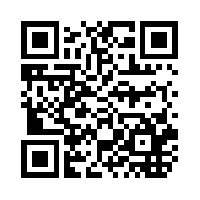Podcast: Play in new window | Download (Duration: 1:00:22 — 17.4MB) | Embed
 “The very word ‘secrecy’ is repugnant in a free and open society; and we are as a people inherently and historically opposed to secret societies, to secret oaths, and to secret proceedings.” “The very word ‘secrecy’ is repugnant in a free and open society; and we are as a people inherently and historically opposed to secret societies, to secret oaths, and to secret proceedings.” John F. Kennedy “I am absolutely opposed to a national ID card. This is a total contradiction of what a free society is all about. The purpose of government is to protect the secrecy and the privacy of all individuals, not the secrecy of government. We don’t need a national ID card.” “The best weapon of a dictatorship is secrecy, but the best weapon of a democracy should be the weapon of openness.” “Until we have a better relationship between private performance and the public truth, as was demonstrated with Watergate, we as the public are absolutely right to remain suspicious, contemptuous even, of the secrecy and the misinformation which is the digest of our news.” “If governments did not mislead their citizens so often, there would be less need for secrecy, and if leaders knew they could not rely on keeping the public in the dark about what they are doing, they would have a powerful incentive to behave better.” |
These are the links to the stories covered on the RLM News Show – June 06, 2013

- Bond volatility’s grim message for the market – MarketWatch
- IRS ranter slashes wrists outside ‘Today’ show in Rockefeller Plaza (VIDEO) – NY Daily News
- Natural Cures Not Medicine: Monsanto Stocks Haven Fallen 10%
- Why is Facebook’s stock falling? Blame teenagers – The Tell – MarketWatch
- New Mexico ranks 21st in per capita state debt
- NSA collecting phone records of millions of Verizon customers daily | World news | The Guardian
- How Outraged Should You Be About the NSA Grabbing Your Phone Logs? – NationalJournal.com
- The NSA, AT&T And The Secrets Of Room 641A | Zero Hedge
- Domestic Spying Revelation Could Be Devastating For The Obama White House | WHAT REALLY HAPPENED
- Exclusive: Microsoft, FBI take aim at global cyber crime ring | Reuters
- Media Spotlight Shines on Bilderberg; Agenda Still Secret | USAHM Conspiracy News
- French president awarded UNESCO peace prize for Mali war | WHAT REALLY HAPPENED
- ‘PM who takes things personally’: Erdogan to demolish park despite protests — RT News
- Dozens Arrested in Turkey over Protest Tweets, accused of ‘Inciting Hatred’ | World Truth.TV
- Syrian Officials Delight In Erdogan’s Misfortunes – Al-Monitor: the Pulse of the Middle East
- Assad army retakes control of strategic Lebanon-bordering Qusayr | End the Lie – Independent News
- White House condemns Syrian government assault on town of Qusair | Reuters
- Buehler found guilty of cussing at cop | Indie Register
Please Click Here and Favorite the
Real Liberty Media page on WorldTruth.org
Interview With American In Turkey: ‘This Isn’t Like Arab Spring’
I spoke with “Natasha,” an American living in Istanbul, Turkey, to get her take on the recent wave of protests throughout Turkey — I wanted to know what initially sparked the protests, how the riot police have responded, and what the average Turk thinks of all this.
The protesting in Turkey “isn’t like the Arab Spring,” in her view, and instead reflects anger and disappointment over a particular politician… rather than some kind of sweeping societal change.
Also, although the economic situation in Turkey sounds tough, it honestly doesn’t sound much worse than the climate that recent university graduates here in the United States face.
Here’s a link to the TechCrunch article explaining how the Turkish government is suddenly limiting access to Facebook and Twitter: TechCrunch
Links to other Important Stories I didn’t have time to cover on the show

- DHS: Laptops, Phones Can Be Searched Based On Hunches… – BlackListedNews.com
- Dissolving Micro-Chip Will Tell Big Brother Your Every Move
- Activist Post: World’s Most Intrusive Database To Go Live In December
- Michael Douglas may be a cunning linguist, but his cancer explanations still make no sense
- Newest edition of psychiatric diagnostic manual to unleash wave of over-medication
- Verdict Finding Excessive Force by Police Is Thrown Out – NYTimes.com
- New York bill would make it a crime to ‘annoy’ police | Indie Register
- Memo: Austin officer fired for trying to get free movie tickets | www.statesman.com
- Billionaire And (Ex) Mexican President Announce Plans To Open Retail Marijuana Stores Around The World | Peace . Gold . Liberty
- IPS – Peak Water, Peak Oil…Now, Peak Soil? | Inter Press Service
- 20 Completely Ridiculous College Courses Being Offered At U.S. Universities
- 2 seniors allegedly glued 100+ door locks at a Simi Valley high school – UPI.com
Obama set on toppling Assad, major war looms
The White House has condemned Assad’s forces for taking over Qusair and has called on Hezbollah and Iran to withdraw forces from Syria. This as, Syrian rebels have attacked Lebanon. Lawrence Freeman, Executive Intelligence Review magazine, joins RT studio for some analysis on the situation.
Surveillance State: Maryland is Listening to You
Do you know that your local city bus might be listening to your conversations?
Depending on where you live, the sidewalks could be recording your every step. And your lampposts and subway cars may be watching you, too.
Once a paranoid notion of science fiction, perpetual state surveillance is fast becoming the new normal. In some cases, the technology is being activated without the consent of the public.
When the Maryland legislature considered a bill to turn on audio recording devices inside its statewide fleet of 758 buses, it set off a fierce debate in the Senate. Delegate Melvin Stukes argued that audio surveillance is a powerful tool to help fight crime, and individuals cannot expect privacy on public transportation. Opposing him was senator James Brochin, who warned of an assault on civil liberties and the frigtening potential for government abuse.
But make no mistake, this was more than a clash of two powerful state politicians. This was a struggle between two cherished American values: privacy versus security. It’s a conflict that’s playing out in communities all across the United States.
So far, surveillance is winning. After the Maryland legislature rejected three bills that sought to activate audio surveillance in buses across the state, the transit authority turned them on anyway, on the advice of the state attorney general.
Do citizens get any say in the matter? In a 1967 ruling, Katz v. United States, the Supreme Court affirmed that the individual right to privacy depends largely on a set of norms that are determined by society. In other words, if you have a reasonable expectation of privacy — even if you’re in a public place — then you are entitled to it.
Surveys show strong and growing public support for some kinds of surveillance. An April 2013 New York Times poll shows that 78% of respondents approved the use of video cameras in public places. Terrorist incidents like Boston Marathon bombings have made the public ever more receptive to cameras in the name of fighting crime. (The poll didn’t ask about audio recording.)
A recent study by the Urban Institute concludes that surveillance has a significant effect on reducing crime. Baltimore, a city with the fourth highest murder rate in the nation, has benefitted from video cameras, as have Chicago, and Washington, D.C.
Yet downsides remain. Even in the young history of audio-visual surveillance, the ACLU notes that the technology has already been abused. Members of law enforcement have used information gleaned from cameras to blackmail, spy, and harrass citizens. And if these crimes seem relatively minor now, imagine how a future J. Edgar Hoover would make use of the all-seeing eye, with its powers of voice matching and face recognition.
It’s a worrisome prospect. Senator Brochin, who accepts video cameras while condemning audio surveillance, is quick to remind us how eavesdropping poses a threat to an open, democratic society. Citing the widespread use of covert listening devices in authoritarian countries, he remains concerned about what the future is going to look — and sound — like.
Surveillance technology has certainly become powerful, and promises to become more so. But when and whether that technonology is used — that power still remains with us.
Runs about 8:12 minutes.
Produced, shot, and edited by Todd Krainin.





![[Most Recent Charts from www.kitco.com]](https://www.kitconet.com/charts/metals/gold/t24_au_en_usoz_4.gif)

